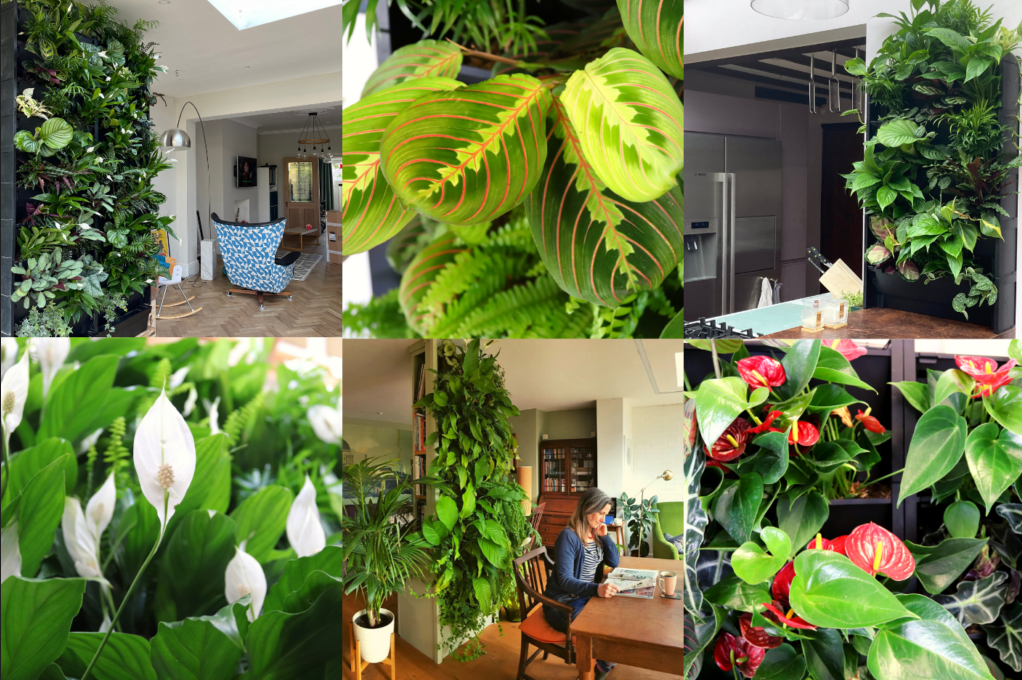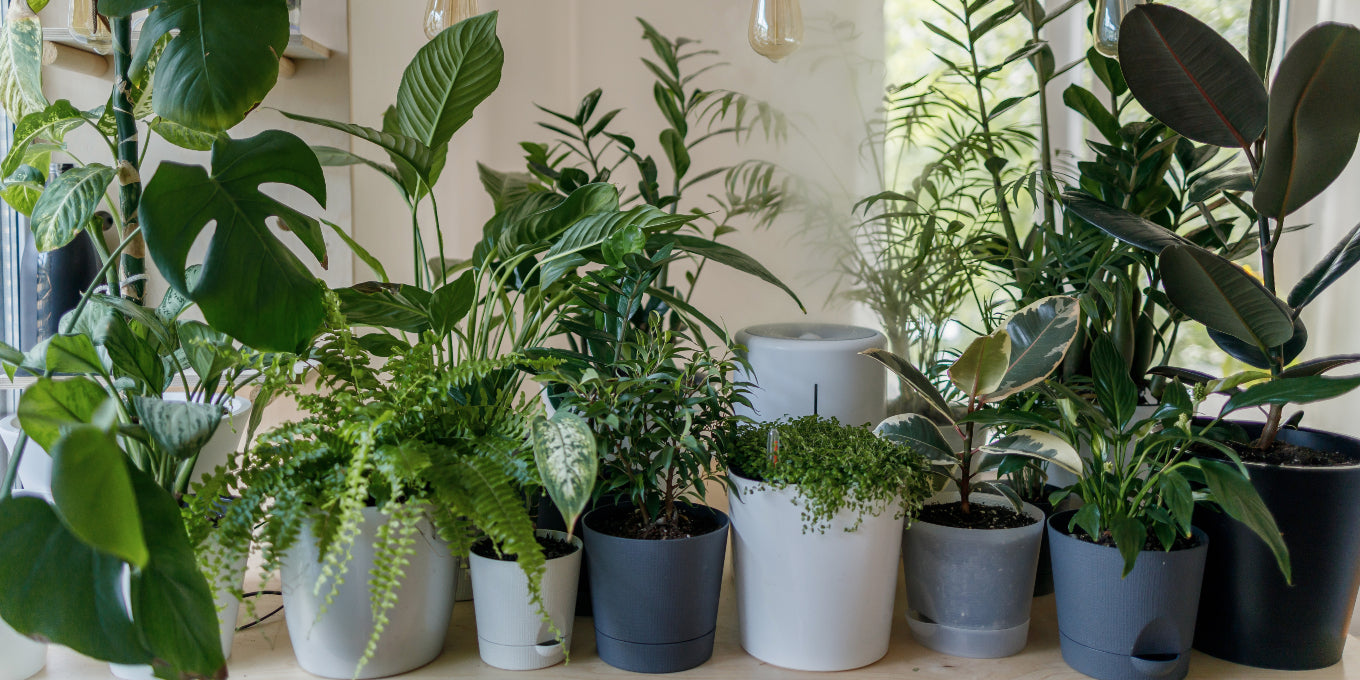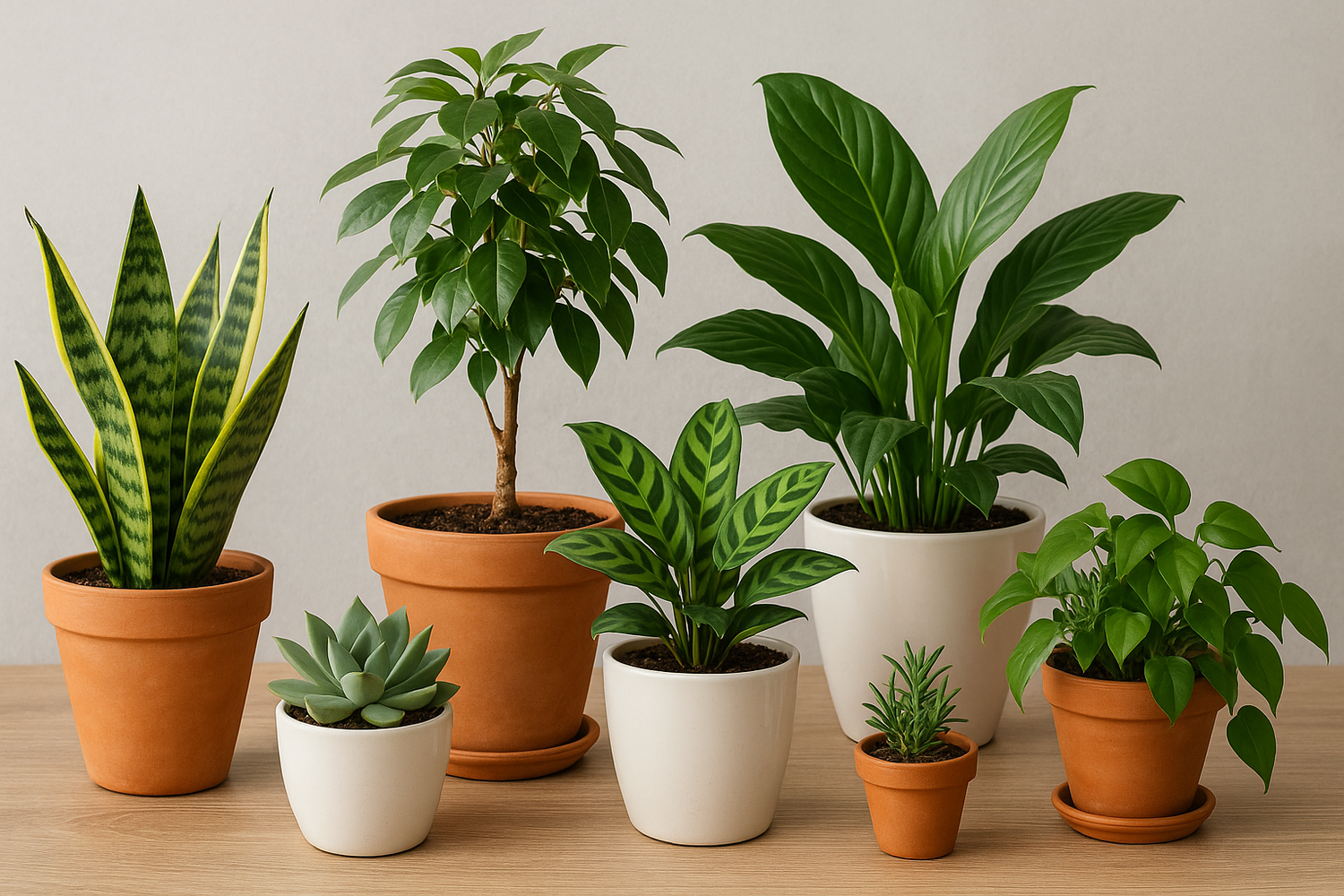Dreaming of harvesting fresh fruits right from your own garden or balcony but afraid it’s too much work? Don’t worry — not all fruit trees are labor-intensive. Many varieties are low-maintenance, beginner-friendly, and ideal for small spaces. Whether you have a backyard, a terrace, or a balcony, you can enjoy growing fruit trees without the stress.
In this guide, we’ll introduce you to the best low-care edible trees perfect for first-time growers, explain their basic care, and help you kickstart your urban gardening journey with ease.
1. Lemon Tree (Citrus limon)
Why it’s ideal:
The lemon tree tops the list of easy fruit trees to grow. It’s fast-growing, evergreen, and thrives in warm climates. Varieties like 'Meyer Lemon' are especially suited for containers and patios.
Benefits:
-
Suitable for container fruit tree gardening
-
Year-round fruiting in warm regions
-
Fragrant blooms and glossy leaves
Care Tip: Needs 6–8 hours of sun. Use well-draining soil and protect from cold drafts.
2. Fig Tree (Ficus carica)
Why it’s ideal:
Figs are incredibly hassle-free backyard fruit trees. They tolerate drought, thrive in containers, and don’t need pollination to bear fruit.
Benefits:
-
Low water requirement
-
Minimal pruning
-
Self-pollinating fruit tree
Perfect for: Beginners who want sweet fruits with minimal fuss.
3. Pomegranate Tree (Punica granatum)
Why it’s ideal:
This hardy tree handles heat and poor soil like a champ. Dwarf varieties are great for gardening fruit trees and containers.
Benefits:
-
Disease-resistant
-
Grows well in containers
-
Beautiful flowers and antioxidant-rich fruit
Care Tip: Prefers full sun and moderate watering. Let the soil dry out between watering.
4. Banana Plant
Why it’s ideal:
While technically a large herb, bananas are often treated like fruit trees in balcony or terrace gardens. They love warmth, humidity, and rich soil.
Benefits:
-
Great for large pots
-
Fast grower and fruit bearer
-
Adds tropical flair to your garden
Note: Water regularly and feed monthly for optimal results.
5. Guava Tree (Psidium guajava)
Why it’s ideal:
Guava is one of the most resilient beginner-friendly orchard trees. It’s drought-tolerant, pest-resistant, and can thrive in poor soil.
Benefits:
-
Fruit is rich in vitamin C
-
Suitable for patios and small gardens
-
Requires little care once established
Care Tip: Water deeply but infrequently. Provide full sun.
6. Mulberry Tree (Morus spp.)
Why it’s ideal:
Mulberries grow quickly and reward you with clusters of sweet berries in early summer. They’re among the easiest fruit trees for small gardens.
Benefits:
-
Fast-growing
-
Low pruning needs
-
Birds love them, and so will you!
Watch Out: They can stain surfaces — best planted in soil rather than near patios.
7. Peach or Nectarine
Why it’s ideal:
These patio fruit trees are compact and self-pollinating, making them ideal for small-space gardeners.
Benefits:
-
Delicious fruit in just 2–3 years
-
Lovely spring blossoms
-
Can be grown in containers
Care Tip: Needs chill hours (cold winters), so choose low-chill cultivars for warmer areas.
8. Loquat Tree (Eriobotrya japonica)
Why it’s ideal:
Loquats are evergreen, ornamental, and highly productive. They’re a hidden gem among low-maintenance fruit trees.
Benefits:
-
Sweet, tangy fruit
-
Attractive foliage year-round
-
Withstands heat and light frost
Perfect for: Gardeners who want a fruit tree with visual appeal and taste.
9. Papaya (Carica papaya)
Why it’s ideal:
If you live in a tropical or semi-tropical climate, papayas are one of the most rewarding low-care edible trees.
Benefits:
-
Fast-growing
-
Bears fruit within the first year
-
Doesn’t require pruning
Care Tip: Needs full sun, rich soil, and regular feeding. Water consistently in hot months.
10. Olive Tree (Olea europaea)
Why it’s ideal:
Olive trees are drought-resistant, long-living, and stunning in containers. They grow slowly and require little maintenance.
Benefits:
-
Excellent for pots or patios
-
Hardy and pest-resistant
-
Adds Mediterranean beauty to spaces
Note: Some varieties are better suited for fruiting than others. Choose self-fruiting types.
How to Choose the Right Fruit Tree as a Beginner
To enjoy a successful harvest without overwhelm, consider the following:
1. Space Available
Choose dwarf fruit trees or container-friendly types if you have a small balcony or rooftop. For ground planting, opt for semi-dwarf or compact trees.
2. Climate Compatibility
Tropical trees like banana and papaya need warmth. Mediterranean fruits like figs and olives thrive in dry heat. Understand your local growing zone before planting.
3. Sunlight Requirements
Most fruit trees for small gardens need full sun (6–8 hours daily). Balconies with only morning or indirect sun should host partial-sun trees like figs or lemons.
4. Pollination
Self-pollinating fruit trees like guava, fig, peach, and pomegranate are easiest for beginners. Avoid those requiring cross-pollination unless you plan to grow more than one variety.
5. Maintenance Level
Stick to trees labeled as low-maintenance, pest-resistant, or disease-tolerant. These terms are good indicators of beginner suitability.
Tips for Growing Fruit Trees with Ease
Here’s how to make your beginner fruit tree journey successful:
-
Pick the Right Pot: Use deep containers with drainage. Lightweight planters are best for terraces and balconies.
-
Feed Monthly: Use organic fertilizer or compost tea to encourage fruiting.
-
Water Smart: Avoid overwatering. Most trees prefer deep, infrequent watering over shallow daily sprinkles.
-
Prune Wisely: Remove dead or crossing branches, and shape your tree annually.
-
Protect from Frost: Move container trees indoors or cover them during cold spells.
Why Start with Low-Maintenance Fruit Trees?
Growing your own fruit offers more than just a sweet reward:
-
Save Money: Store-bought organic fruits are expensive.
-
Eat Fresh: Harvest your produce at peak ripeness.
-
Reduce Chemicals: Home-grown fruits are pesticide-free.
-
Boost Well-Being: Gardening reduces stress and improves mental health.
-
Beautify Your Space: Fruit trees add life and beauty to patios, balconies, and yards.
Final Thoughts
Starting a fruit garden doesn't have to be overwhelming. With the right selection of low-maintenance fruit trees, even beginners with limited space or experience can enjoy juicy, home-grown harvests. Whether you're working with a backyard or a sunny balcony, there’s a perfect patio fruit tree or container-friendly fruit tree waiting for you.





